Regarding the immigration and customs regulations so far, entering both countries we had visited was totally hassle-free: visa-on-arrival, nothing to declare, few police controls, fast and effective procedures. With respect to their political situation and the tedious work we had needed before obtaining a visa, we were expecting things at the frontiers to change drastically for the two countries that still lay ahead of us. And indeed, we should not be disappointed ….
While leaving Kyrgyzstan was as simple and uncomplicated as travelling through this region during the past weeks, entering Uzbekistan was a completely different challenge. Our visas seemed to be in order, but we had been warned about their pettiness at the customs. First we were asked what kind of “special goods” (books, electronic devices, medicine) we carried with us, which we answered honestly. Thereafter the officials nonetheless wanted to check everything explicitly. So we were ordered to put out literally everything out of our backpacks such that they could verify that we were not smuggling any kind of drugs (with sleeping pills being a serious issue), books about religion (whereas we had to explain them ourselves the content of the book and could have told anything we wanted) or images containing offensive material. Especially the last one was thoroughly examined by the border-post officers. Even if we know that Google or the NSA read all our emails and already know everything about us, we soon realized that in Uzbekistan privacy is simply nonexistent and that Facebook is a prime example of anonymity compared to that. We were told to hand in our smartphones and ipads to let them look at the stored pictures. I for myself was quite lucky because rapidly the male official became much more interested in my 350 world-trip photos from 2012. He took his time and contemplated attentively my impressions from all around the world, asked me many questions about the people, the landscapes, the monuments or the political situation, and was very impressed by my craziness (“You really jumped down from this bridge?”). On the other side of the desk, Michael was not as lucky with the female official, who was taking her authority seriously. She navigated through his whole whatsapp-history and inspected every single crappy file she could find. And when she unfortunately encountered a photoshopped caricature of a topless Angela Merkel, which of course was considered as highly pornographic material, her aversion towards Michael increased and she desperately searched for something more compromising. Nevertheless, after almost 40 minutes of inspection and the deletion of some “inappropriate media”, we were eventually released and were allowed to enter the country – also to the delight of the persons behind us waiting for their turn to be taken apart.
We directly jumped onto a shared taxi and drove all the way through the Fergana Valley up to Tashkent, the Uzbek capital city. It was a long, exhausting ride through hot, dry and dusty deserts and hills, and with an incredible amount of police checkpoints and military presence, that further contributed to a rather uninviting atmosphere.
Fortunately, our first impression of Tashkent was positive and contributed a lot to change our attitude towards this new destination. The city appeared way more wealthy and developed, there is a huge downtown in the center, its roads and buildings are in good shape, and everything is built and arranged much more beautifully. We walked along vast clean avenues, through green parks with small lakes and water fountains, and admired imposing monuments. Also the old town’s streets are nice and charming, and the majestic “Khast Imam Mosque” nearby (supposedly home to world’s oldest Qur’an) leaves you breathless. But most notably in Tashkent the modern and fancily designed metro leaps out, which is a comfortable, fast and cheap mean to get around. It is a pity you are not allowed to take pictures because the whole underground network may at the same time be used as atomic bomb shelter in case of war. And given that we probably moved around by metro at least five times a day, the innumerable policemen at the entry, who always want to check your bag and see your passport, became increasingly annoying. The same holds regarding the obligation for tourists to register each night they spend here – and you should better keep all registration receipts conscientiously, since they might carefully examine them the day you’ll leave the country. At least the likewise super friendly staff at Gulnara Guesthouse helped us with these procedures.
Another weird aspect of the Uzbek way of life relates to money. First of all, as a foreigner you cannot withdraw cash at ATMs but have to exchange your euros or dollars to get the local currency. Furthermore, you would be ill-advised to change your bills at official banks, because you can be offered a by 30% (!!) better rate at the black market, which makes you save lots of money in the long run. Best spots to find such black-market exchanger are the anyway great bazaars of Tashkent or other towns in Uzbekistan – just make sure you know both the official and best possible rate, bargain hard and take advantage of the high competition between several money-changer until you receive a “fair” price at last. Regarding this slightly unconventional financial system, what was even more astounding is the fact that the highest note of 1000 som is approximately worth 30 cents. Specifically it means that for only 50 US$ you already get 150 bills of a thousand som each (if changing at black-market rate). So in the end, you see people walking with big bundles of bills in their hands and (re-)counting their cash all the time (also we had to learn the best techniques how to count the bunches of worthless currency quickly). In the beginning, paying for your train tickets or B&Bs felt a bit funny for us: it seems like a ton of notes goes over the desk from one pocket to the other (actually a backpack is more appropriate to transport cash). We can now better understand and believe that when they want to buy a car, they invite all friends to their house and together have to count money a whole day long.
All in all, those police-state methods are no real surprise and fit quite well to the local political situation. Uzbekistan’s first and still current president Islam Karimov rules his “Republic” in a rather despotic manner. Omnipresent, he once explained that “historically, Uzbek people need a strong centralized leadership”. There is no freedom of press nor opposition or democratic elections. However, especially at the beginning of the 2000s, the country maintained good relationships with the western civilization (mainly the US) and received much development aid, not least because of their direct overland access to Afghanistan during the war. Things changed 2005, where a movement of allegedly “Islamist, fundamentalist and extremist” protesters and demonstrators was brutally massacred in Andijan, causing several hundreds of killed civilians. Criticizing this massacre to be a clear abuse of human rights and a pretext for maintaining a repressive regime, the European Union and the USA decided to loosen their ties to Uzbekistan and imposed sanctions such as arms embargoes or visa denials. But in the meantime, negotiations resumed and the EU is thinking about reducing sanctions again (since always, economic reasons of course outweigh and predominate over human values).
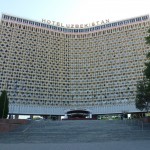
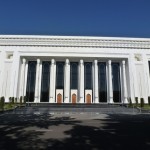
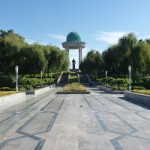
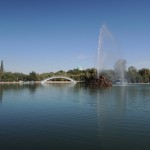
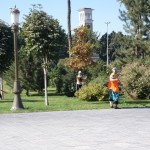
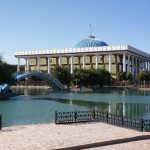
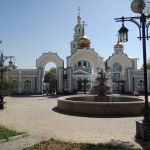
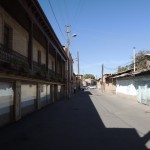
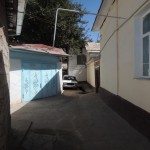
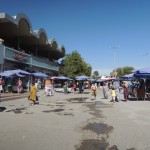
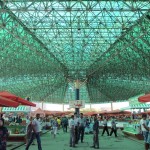
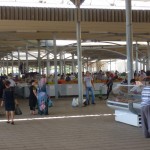
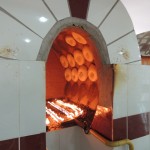
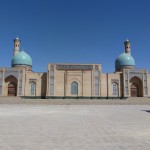
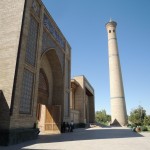
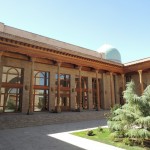
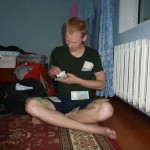
J’ai bien aimé la question de ‘ton’ douanier (“You really jumped down from this bridge?”) et aussi l’impression laissée par la Chancelière allemande “habillée” en topless à la douanière s’occupant de ton copain..!!..